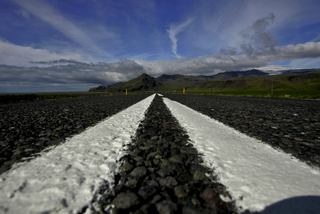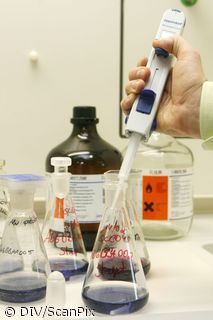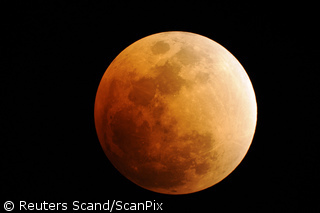Data storage companies Toshiba and SanDisk announced a new flash memory chip designed to address the growing use of large media files
Published:
11 February 2005 y., Friday
Data storage companies Toshiba and SanDisk announced a new flash memory chip designed to address the growing use of large media files.
The joint development partnership has produced a chip that accommodates 8-gigabits (Gb) of storage. Made using 70-nanometer (nm) process technology, the computer memory chip is based on a NAND design, which makes it suitable for storing music, video and other data. Toshiba and SanDisk said products based on their new flash memory technology should start rolling out this summer.
The companies said the 8Gb chip will become "the production workhorse" for the joint venture between Toshiba and SanDisk. At a size of 146-millimeters, the 8Gb chip has a density of 6 billion bits or 3 billion transistors per square centimeter (20 billion transistors per square inch of silicon). The companies said they also plan to commercialize a 16Gb NAND flash memory component that stacks two of the 8Gb NAND flash memories in a single package.
The new NAND flash memory chip uses multi-level cell technology that lets two bits of data be stored in one memory cell - in effect doubling the memory capacity. The circuit design is less than 5 percent larger than the previous generation 4Gb chip on 90-nanometer. Toshiba and SanDisk said they also increased the speed at which the chip writes data with a combination of burst mode techniques and high read bandwidth.
Production of the chip falls right in-line with Toshiba's previously announced roadmap and is designed to compete against the largest flash memory producer, Samsung.
Šaltinis:
internetnews.com
Copying, publishing, announcing any information from the News.lt portal without written permission of News.lt editorial office is prohibited.
The most popular articles

The European Commission announced today the award of three of the six contracts for the procurement of Galileo’s initial operational capability.
more »
 As part of the 2009 European Year of Creativity and Innovation, a diverse group of prominent scientists, artists, scholars and business executives - European ambassadors of the year – has come up with an ambitious manifesto.
more »
As part of the 2009 European Year of Creativity and Innovation, a diverse group of prominent scientists, artists, scholars and business executives - European ambassadors of the year – has come up with an ambitious manifesto.
more »
 A hundred teams have arrived to Washington, DC from all corners of the globe, each with an idea to help save the planet.
more »
A hundred teams have arrived to Washington, DC from all corners of the globe, each with an idea to help save the planet.
more »
 NASA is calling its new rocket Ares 1-X the next chapter in space exploration.
more »
NASA is calling its new rocket Ares 1-X the next chapter in space exploration.
more »
 Common rules proposed for cross-border inheritances.
more »
Common rules proposed for cross-border inheritances.
more »
 Solar energy and carbon capture and storage earmarked for lion's share of extra technology funding.
more »
Solar energy and carbon capture and storage earmarked for lion's share of extra technology funding.
more »
 George Smith and his colleague Willard Boyle revolutionized digital imaging technology, and on Tuesday the two men each got an early morning call from Sweden advising they'd been awarded one half of the 2009 Nobel Prize for Physics.
more »
George Smith and his colleague Willard Boyle revolutionized digital imaging technology, and on Tuesday the two men each got an early morning call from Sweden advising they'd been awarded one half of the 2009 Nobel Prize for Physics.
more »
 European Commission called public authorities, business, and researchers to join efforts in order to develop by 2020 the necessary technologies to address climate change, secure EU energy supply and ensure the competitiveness of our economies.
more »
European Commission called public authorities, business, and researchers to join efforts in order to develop by 2020 the necessary technologies to address climate change, secure EU energy supply and ensure the competitiveness of our economies.
more »
 This year's announcement from Stockholm, Sweden -- awarded the Nobel prize for medicine to a trio of Americans for discovering telomerase -- an enzyme which helps prevent the fraying of chromosomes that underlies aging and cancer.
more »
This year's announcement from Stockholm, Sweden -- awarded the Nobel prize for medicine to a trio of Americans for discovering telomerase -- an enzyme which helps prevent the fraying of chromosomes that underlies aging and cancer.
more »
 Since its launch in 1987, the Erasmus programme has helped 2 million students carry out a part of their studies or a work placement in another European country.
more »
Since its launch in 1987, the Erasmus programme has helped 2 million students carry out a part of their studies or a work placement in another European country.
more »
 Three separate missions examining the moon have found clear evidence of water there, apparently concentrated at the poles and possibly formed by the solar wind.
more »
Three separate missions examining the moon have found clear evidence of water there, apparently concentrated at the poles and possibly formed by the solar wind.
more »